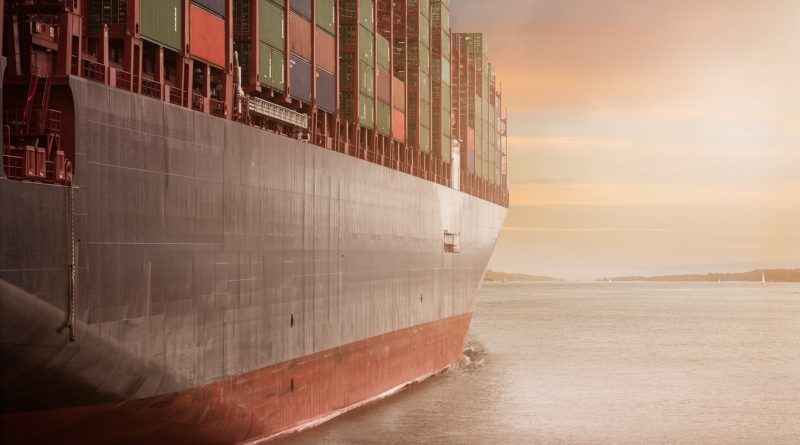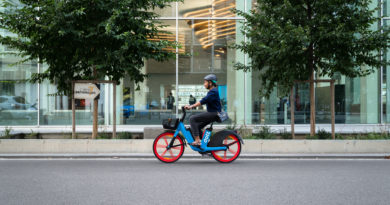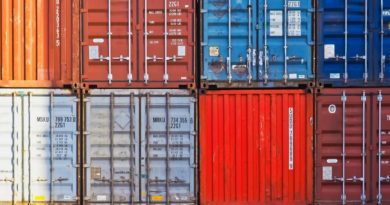LEVA EU & EBMA: discussing anti-dumping duties
In light of the EU Commission’s recent decision to impose anti-dumping duties on imported e-bikes from China, LEVA-EU’s Annick Roetynck and EBMA Secretary General Moreno Fioravanti share their thoughts on the issue…
Annick Roetynck, Manager, LEVA-EU
How did the Collective of European Importers react to the Commission’s decision to impose the anti-dumping duties?
We knew the decision was coming since the publication of the disclosure document in November last year. We think that the decision is unfounded, unjust and unfair. I believe we have provided the Commission with substantial evidence to prove that there was no dumping and no injury to the EU Industry. We had three hearings in which the importers explained their position and views to the Commission and submitted position papers on every major step taken. We also had two meetings with the Cabinet of Commissioner Malmström and organised a protest letter signed by 60 European importers. However, the Commission concluded that they could afford to ignore the Collective and go along with the EBMA’s arguments.
Why did LEVA-EU decide to support the Collective in this case?
LEVA-EU’s sole objective is to promote light electric vehicles and the LEVA-business, irrespective of whether a company imports, manufactures or distributes. We accepted the appeal for help after careful consideration, concluding that dumping duties would prevent the sector tapping into the ever-growing LEV-potential. Every congestion charge, every low emission zone, every SUMP is a gift to the LEV-business. New markets are being opened, for free, every day all over Europe. Dumping cases are time consuming to a point that there is hardly any time left to do the work that really needs doing. LEVA-EU is, however, trying to do that work; building bridges between companies and continents, and informing the sector on rules so that it becomes easier for companies to work by the book. We also work for better technical regulations and we ask for attention in policies relevant to LEVs and in European subsidy programmes. Our ultimate objective is to prove how counter-productive it is to use trade defence instruments for purposes other than what they are really meant for. If LEVA-EU can achieve that by supporting companies going against this counterproductive initiative, then we improve chances to get the whole sector around the table and start a serious discussion about how to grow the market for all instead of making only some pieces of the cake bigger.
Why, in your opinion, was this not a case of anti-dumping?
To establish dumping, the Commission must prove dumping, injury to the EU industry and a causal link between the two. The Commission managed to establish dumping with no proof at all. As for injury to the EU Industry, the Commission was unable to find anything, because all the EU industry performance indicators had been going up in the investigated period. Nevertheless, the Commission managed to prove injury on the basis of the fact that the profitability of the EU industry was 0.9% lower than what the Commission believed was an acceptable level. In several Commission documents there are allegations that the dumped imports from China have caused the bankruptcy of four European companies, however the Commission refused to disclose the identity of those four companies, so how were we supposed to refute the allegations? The only difference between a manufacturer and an importer is the fact that the first has its assembly in Europe. In some European countries, you can find cheaper assembly than in China. Many manufacturers buy their components from the same companies as the importers, which I believe is why they were lobbying for a suspension of duties on a number of e-bike components, whilst at the same time lobbying for dumping duties.
What do these measures mean for European e-bike importers in both the immediate and distant future?
First of all, this case has caused importers huge economic damage even before the final decision was published. Following one of our own surveys we estimated the costs for all European SMEs resulting from the proceeding itself, not including provisional duties, at around €100 million. Presently, these measures cause European importers huge problems. Many had to fundamentally change their business plans overnight, and some of them still had containers on the water when provisional duties were imposed. For those importers who are trying to set up assembly in Europe there is an additional problem. The import of several essential bicycle components is subject to 48.5% anti-circumvention duty, which results from duties on conventional bicycles. However, if you are using these components for the assembly of electric bikes, then you are exempt from that charge provided you obtain an end-use authorisation. It now appears that customs’ services throughout Europe are unaware of this exemption and therefore still charge the duty. LEVA-EU is currently working hard to inform both the companies and the customs’ services on this issue. As for the distant future, an anti-circumvention complaint by EBMA seems to be inevitable. They are already in the process of gathering evidence of tran-shipments, circumvention through containers, and so on. In that case, businesses will have to assemble electric bicycles in Europe with no more than 60% of the value of the bikes coming from China. In my opinion, Europe needs to focus on R&D, innovating business models, how to push LEV uptake, how to encourage start-ups, how to cooperate with the scientific and academic world, and on setting up alliances with cities and citizens’ organisations. Should that result in the conclusion that it may be useful to start up production in Europe, fine. But we shouldn’t defy economic reality by bringing back production just out of nostalgia.
Do you think this ruling will lead to long term impacts on the European e-bike industry as a whole?
A first review will be possible after one year following the decision. Perhaps that will be an opportunity to fight it again. There is one big difference between the electric bike and the conventional bike case. In this case, we have developed a co-operation with the Chinese suppliers and with their political representatives. This has allowed for a much better understanding of the European rules and procedures on behalf of the Chinese. We are convinced that this will be to our mutual benefit in the future.
Is it a small victory for importers that retroactive dumping duties were not imposed?
It saved those companies that still had electric bikes coming in to Europe between May and July a lot of money. The Collective members reported a total of almost €4.8 million that would have been due. So, for all European importers it would have been much more. This is exactly why I don’t consider the Commission’s final decision as a defeat. Not only did we avoid retroactive collection, I believe that without the Collective’s efforts the final duties would have been higher. But most importantly, we have set an important process in motion, a process of cooperation among the importers as well as with their Chinese suppliers. We sincerely believe that building bridges, communicating with each other and mutual respect will eventually be much more fruitful.
Moreno Fioravanti, Secretary General, EBMA
What did you make of the Commission’s decision?
After an exhausting investigation for the Commission, they found our complaint to be true. Large amounts of imports from China were eating up the market, and this huge dumping would have seen manufacturing of bicycles, pedal-assist e-bikes and components in Europe disappear. The decision by the European Union should send a clear signal to Chinese e-bike companies to stop their dumping in the EU, and to the Chinese government to stop its massive subsidy programmes which are unfairly favouring Chinese e-bike exporters. Almost one million e-bikes were coming in to Europe from China, which could now be assembled in the EU. We have over 90,000 green jobs at risk in over 800 manufacturing SMEs and related upstream suppliers, and if we lost the manufacturing of e-bikes, which are the future, then we risked losing the future of the bike industry.
Why did the EBMA decide to lodge the anti-dumping complaint?
Today, unfortunately, it is trade which decides where manufacturing will be; it is manufacturing which creates long term, quality jobs, but just importing does not. As is now emerging, China is also taking over Japan’s e-bike market. China already has the monopoly of bicycles in the US and many other countries and I don’t want to see this unhealthy monopoly happen here in Europe. It is the European industry which successfully developed the pedal-assist e-bike and its relevant regulation with the Commission over 20 years ago. If the EU bike industry would have disappeared back in the 1990s because of subsidised dumping from China, this fantastic product would not have been brought to the EU market, for the health and enthusiasm of millions of European riders. Without immediate action, China would quickly take over the vast majority of the EU e-bike market, causing an unfair and unjustified decline of the industry after it has generated so many excellent and innovative products.
Would you say that environmental impacts of imports were also a factor in this decision?
We are one of the largest employers of green industries in the UK. China will be allowed, until 2050, to adopt coal as its main, cheapest source of energy due to still being a ‘developing country’ for WTO, which frankly doesn’t match their current status of the largest industrialised country in the world. This means that China will absorb more and more industry from the EU, as their cost of energy will be a fraction of ours because we, rightly, will be adopting more renewable and clean, but expensive, energy. A Milan Polytechnic Study shows that a bicycle or e-bike manufactured in the EU costs from 61 to 123 kilograms of CO2and other dangerous emissions less than if imported from China. Roughly 50% of extra emissions are caused by China’s adoption of coal in the production of steel, aluminium and chemicals. The other half is because of transport, which causes the most dangerous emissions such as sulphuric dioxide, as containerships still adopt ‘sludge oil’ as fuel like they did 100 years ago.
How will European manufacturers benefit from the imposition of anti-dumping duties?
We will know the results properly after the winter, but we have already had positive indicators since 18 July, when the provisional measures were adopted by the Commission; the number of e-bikes imported into Europe per month has come down from some 100,000 to ten thousand. These definitive trade defence measures will shield over 800 sustainable manufacturing SMEs and 90,000 European green jobs in the industry against unfair competition from China. EU anti-dumping and anti-subsidy measures will also lead to the creation of nearly five thousand new European jobs already in the first half of 2019 thanks to the re-shoring of the production of 900,000 e-bikes this year. We hope in the future that new WTO reformed regulations, promoted at present by the US, Japan and the EU, for stronger anti-subsidy rules and effective social and environmental standards to be adopted as criteria for imports out of countries like China, will result in a much better and balanced multilateral world trade; not just one way.
What do you think about the economic damage to importers as a result of these measures?
There is no economic damage; importers will simply switch to other sources, as already happened back in the 1990s for the bicycle anti-dumping case. There will be no job losses for them. However, our 800 manufacturing SMEs have strong social responsibilities to employees in their own factories who will lose their jobs is they shut down because of unfair subsidised dumping from the People’s Republic of China. It is my duty to avoid this total tragedy of losing factories and jobs in our EU bike industry. That is why the EBMA fought against the subsidised dumping of e-bikes from China, asking for the legitimate defence allowed by the Commission’s trade Defence Instruments and the WTO’s international rules. The EBMA stands for free and fair trade. Being in the European bike industry since 1982, I have never seen importers shut down because of trade defence instruments adopted by the Commission, as they can easily switch sourcing to many other countries which also benefit from zero duty to the EU, such as Cambodia, Bangladesh, Philippines, Tunisia, Turkey or Serbia. So if one importer shuts down as a result of these anti-dumping measures, then I would be extremely surprised.
Is there a possibility of an anti-circumvention complaint from EBMA in the future?
Unfortunately, Chinese e-bike manufacturers have already started circumventing EU legitimate trade defense measures through third countries. EBMA will do whatever it takes to stop such illegal circumvention. European importers need to double check that their suppliers are genuine, and not simply re-packaging Chinese e-bikes in contravention of EU anti-circumvention laws. EU importers are welcome to contact EBMA for assistance to avoid breaking the Comission and WTO’s rules and stopping circumvention from China.
Need a refresher on the anti-dumping case? We’ve got it covered…
22/11/2016 Industry sources reveal to CIN that China’s Chamber of Commerce for Import & Export of Machinery & Electronic products has held an emergency meeting in relation to proposed anti-dumping e-bike charge
23/12/2016 China lodges complaint with WTO on how the EU calculates dumping damages
2/10/2016 EBMA files anti-dumping complaint against Chinese e-bike export trade
20/10/2017 EBMA welcomes the EU Commission’s investigation into e-bike dumping while Chinese representatives call for the case to be dropped
13/11/2017 Chinese organisations respond to EBMA’s complaint with own investigation
15/11/2017 MEPs vote in favour of trade rules to protect EU jobs and businesses against “unfair trade”
29/11/2017 EU e-bike importers form a Collective and rally support against EBMA’s complaint
1/12/2017 LEVA-EU accepts Collective’s request to assist defence of AD643 duty
08/02/2018 Roetynck pens editorial to clarify concern over retroactive duties
12/04/2018 The Collective sends 2nd open position paper to the Commission objecting to retroactive collection of duties
04/06/2018 EBMA instigates new review by the Commission into existing 48.5% anti-dumping measures on bikes imported from third countries
17/07/2018 EU Commission imposes provisional anti-dumping duties on e-bikes imported from China
24/07/2018 UK government publishes decision to terminate anti-dumping measures on e-bikes in case of no deal Brexit
23/08/2018 LEVA-EU questions data alleging damage to EU manufacturing industry
17/08/2018 Total value of imports in Q2 revealed at £83m, down 9% on same period in 2017
07/12/2018 LEVA-EU responds to EU Commission’s General Final Disclosure Document, claiming it “totally failed” to establish injury to EU manufacturers.
13/12/2018 60 European SMEs call on EU Trade Commissioner to review the Commission’s intention
18/12/2018 Majority of member states back EU Commission’s proposal to impose anti-dumping duties
18/01/2019 EU officially confirms it will impose anti-dumping duties on e-bikes originating from China



